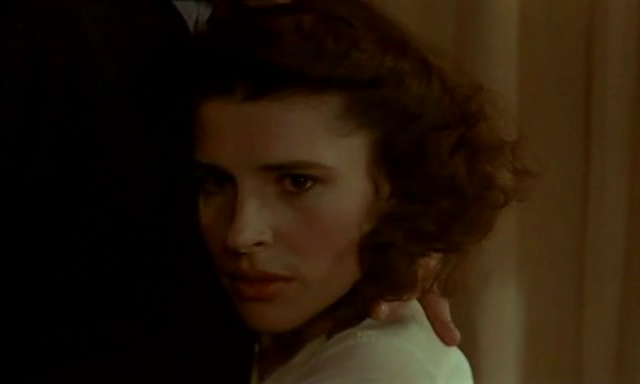|
Genres, Themes, Actors, and Directors:
- Francois Truffaut Films
- French Films
- Gerard Depardieu Films
- Infidelity
- Obsessive Love
Review:
In his penultimate film, Francois Truffaut returned to his interest in exploring the dangers of obsessive love, as represented here by a pair of former lovers who (to no great surprise) find themselves unable to resist the temptation to fall back into one another’s arms. The storyline itself — an original “scenario” by Truffaut, his long-time collaborator Suzanne Schiffman, and Jean Aurel — offers little that’s new or interesting within this limited genre, though one can’t help watching with morbid curiosity to see what will befall our foolish protagonists (and their hapless spouses) next. What’s most memorable about the film is the vibrant, sensual presence of young Fanny Ardant, who was nominated for a Cesar Award, and became Truffaut’s real-life lover, as well as the mother of one of his daughters. While we never fully understand her “issues” (or those of Depardieu’s character, for that matter), she’s nonetheless consistently appealing to watch on screen, especially as filmed in such a luminous fashion (see still below).
Redeeming Qualities and Moments:
- Fanny Ardant as Mathilde

Must See?
No, though it’s worth a look, and will certainly be of interest to fans of Truffaut’s work.
Links:
|
One thought on “Woman Next Door, The (1981)”
Not must-see.
In agreement: “The storyline itself…offers little that’s new or interesting within this limited genre…”. Perhaps Truffaut genuinely felt he was approaching this material from a unique angle; that his depiction of particular subtleties of mindless passion would bring about something fresh.
However, while Truffaut does manage to keep his film from being tiresome for the most part, it begins to lost steam once it’s realized that Ardant is literally losing her mind. ‘TWND’ begins to seem a sort of blend of Truffaut’s own ‘The Story of Adele H’ and Oshima’s ‘In the Realm of the Senses’.
On the plus side, DP William Lubtchansky made sure that this is one of Truffaut’s best-looking films…and Ardant is certainly a lot better in this than in ‘Confidentially Yours’ (where she seems less comfortable with the tone of what she’s playing).